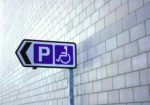The brakes have been slammed on a plan to introduce mobile average speed cameras to the Isle of Wight.
A look into whether the cameras would be effective on the Island has come back with ‘insufficient evidence’.
Conservatives allocated £300k
In February this year, the Conservatives put £300,000 into the budget, to buy two sets of mobile average speed cameras to crack down on speeding problems.
There are currently no fixed speed cameras in operation on the Island after those were turned off several years ago.
The remaining distinctive yellow-box cases were removed last year having been kept empty to act as a deterrent.
Less capacity to enforce speed limits
A speed camera van does move around the Island, operated by Hampshire Constabulary, but with the traffic policing team now merged with the armed response unit, there is less capacity now to enforce speed limits.
The Conservatives had hoped the cameras could be an answer to enforcing speed limits but with a change in administration, and officer research, the business case for buying the cameras could be halted.
Officers were instructed to identify costs and whether they were effective.
Only one trial in UK
Relaying the findings to the council’s Neighbourhood and Regeneration Scrutiny Committee last night (Thursday), Colin Rowlands, director of neighbourhoods, said they only found one trial of mobile average speed cameras in 2011, but failed to find if that continued or whether any operated in the UK today.
Rowlands: Money better used by going towards speed review
Mr Rowlands believed the cameras were not something the council should consider right now although technology may improve.
Instead, he said, the money would be better used by going towards the speed review the council is already carrying out — which looks at the perception of speeding on the Island, how Islanders feel about speeding and what measures can be taken to tackle it.
Insufficient evidence to proceed with a business case
Councillors unanimously agreed there was insufficient evidence to proceed with a business case for the cameras.
The committee’s comments will be relayed to cabinet for decision.
The speed review will finish in March, with the data analysed and a report brought back to the council this time next year.
This article is from the BBC’s LDRS (Local Democracy Reporter Service) scheme, which News OnTheWight is part of. Read here to find about more about how that scheme works on the Island. Some alterations and additions may have been made by News OnTheWight. Ed




